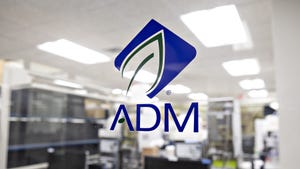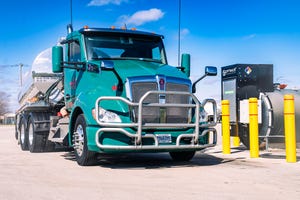Food safety key priority for Tyson
Company employs nearly 3,000 foods safety and quality assurance team members.

Food safety, as well as constantly improving in this area, is the number-one priority for Suzanne Finstad, vice president of food safety and quality assurance for poultry at Tyson Foods.
According to Finstad, Tyson employs more than 2,700 food safety and quality assurance team members who are focused not only on making sure the company produces safe food every day but also on continuously improving the systems, processes and technologies utilized to do it. Additionally, the team members work alongside on-site federal inspectors who also verify product safety.
Finstad added that Tyson has a cross-functional team of scientists and operations experts who are always looking for new ways to improve the processes.
“They’ve made significant progress toward eliminating bacteria from our fresh chicken and preventing the inclusion of foreign objects in the food we produce, and we continue to do more,” she explained. “We continually evaluate and test new technologies, educate our team, audit our processes and look to innovate in areas of food safety.”
For example, she said Tyson Ventures, the company’s capital venture fund, invested earlier this year in Clear Labs, a startup technology company focused on food safety.
Still, even with all the company does, it is not perfect, Finstad noted.
“On rare occasions, there are issues that arise where we recall product from the marketplace. We take these issues very seriously, and when they occur, we move quickly to notify those affected and take corrective action, because we want our consumers — which include your family and our own — to have the very best eating experience,” she said.
During recalls, the company seeks to be transparent, listing past recall actions in its Sustainability Report as well as publishing news releases about recalls when they occur. “We learn from these recalls, making sure that we understand what happened and how we can improve our process to guard against it happening again,” Finstad said.
She noted that it’s important to remember a few key things.
First, Finstad said no one wants an issue to occur that causes a product recall, but “when it does, we don’t hesitate to take action.”
Second, she emphasized that the food safety system works, explaining, “When someone in the supply chain or a consumer raises a concern, we investigate and evaluate, moving quickly to recall product when it’s the right thing to do.”
Finstad pointed out that due to the company’s efforts, product recalls are “very rare.”
She said, “Given the amount of food we produce every week – about 66 million lb. of prepared foods alone, not including all the fresh food we make – the percentage of food involved in recalls is extremely small; I estimate less than a half of 1% in this past year.”
About the Author(s)
You May Also Like



.png?width=300&auto=webp&quality=80&disable=upscale)

